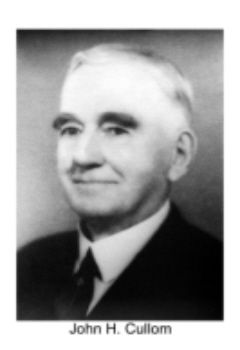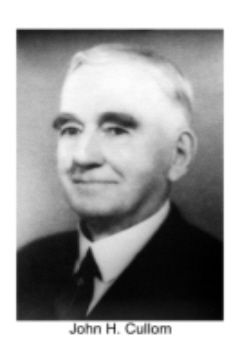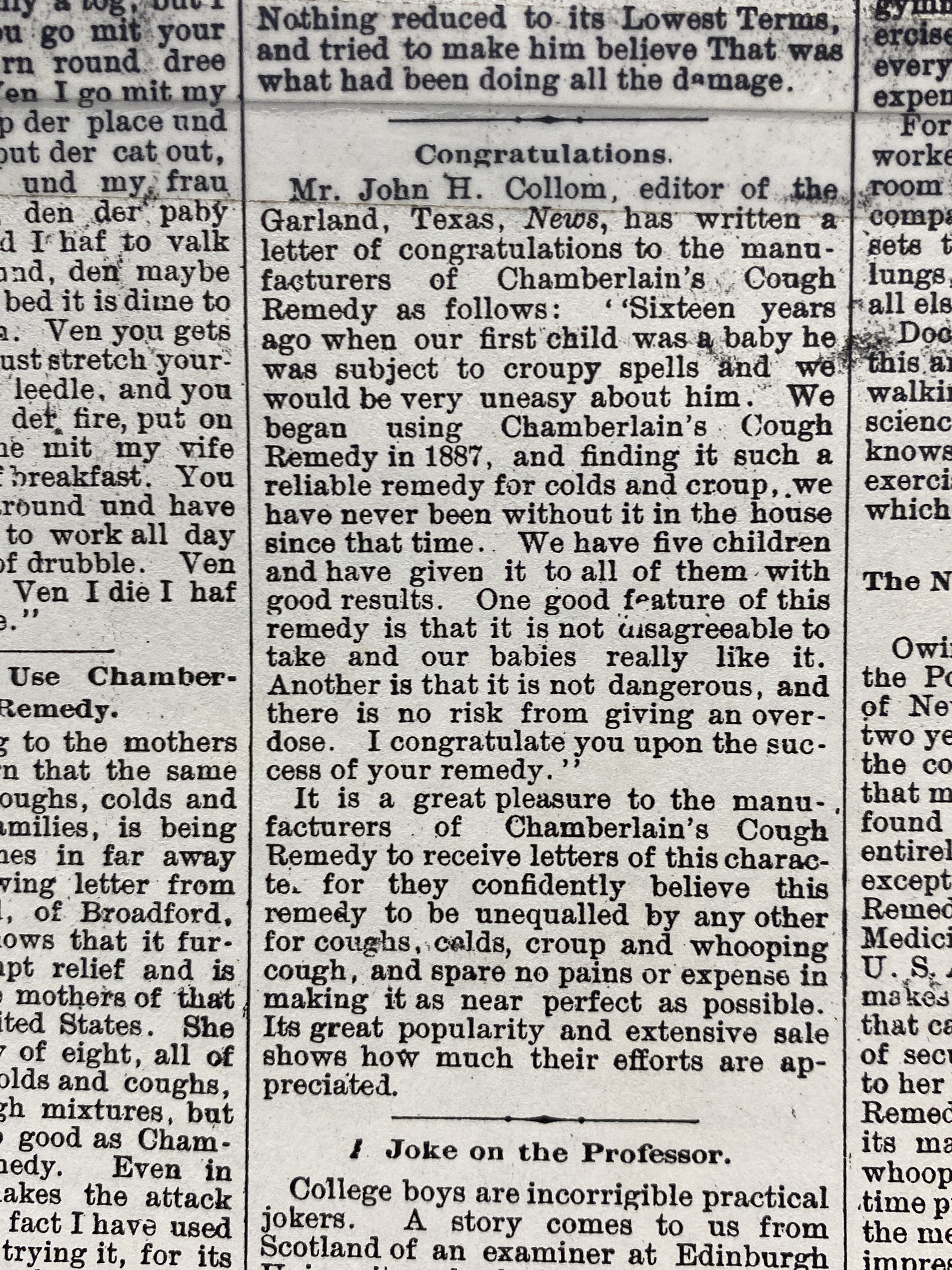I have lived in Dallas County fifty-two years," said John H. Cullom, County Tax Collector. "My father, the late Peter Cullom, known as Uncle Peter, who lived at Nashville, Tenn., brought me, as a small boy, along with the rest of the family to Texas in 1877. My mother's brother, Henry Hollis, had [preceded] us by ten or fifteen years and had acquired a body of 500 acres of black waxy land, a short distance north of Forney.
"For our first crop of cotton, we got 9¢ at Forney and 9¢ and 10¢ for several years, thereafter, but during the hard times following the election of President Cleveland, the market went to pieces and the price dropped below the cost of production. The price of corn fluctuated widely in those days. There was no outside market for corn, nor was there any shipped in from other states. The result was, that when the crop failed, as it often did, nobody had any corn and when it hit, everybody had corn. So, when a farmer planted corn, there was no telling whether he was going to get 15¢ or $1 a bushel for what he produced. Fortunately, however, we did not need corn for work stock, for they could keep in good condition on grass alone. We could work them all day and turn them out at night and the luxuriant native grass would look after the feed bill. But, the native grasses are becoming extinct, along with the horses, mules and oxen.
"The only church in our section was at Forney. The Methodists, Baptists, Presbyterians and Christians occupied it Sunday about; that is, each of them had it one Sunday in the month, and all four were represented by teachers in the Sunday school, which was held every Sunday, and to which people went for miles. I walked three miles to get to it. It was at Forney, I saw my first circus. I was too much engrossed in the sensational details of it to bother about who owned it, but my impression is that it was C. W. Noyes' Great Crescent City Circus. I still remember the tunes the band played. Some of us boys, next day, made a springboard and began to imitate the tumbling of the circus performers, others were carried away by the trapeze artists and others, still, sat down and let the band tunes radio through their heads. Interest soon waned in the springboard and the trapeze, but the musical bunch organized a band, of which, I became a member. We bought uniforms, and were, before long, playing for picnics and other gatherings. The first telephone I ever saw was at Forney. C. H. Alexander and John Walker, merchants, who had been reading of experiments with the telephone in New York, undertook to experiment on their own hook. They ran a string between their stores, a block apart, and arranged, as best they knew how, the whole apparatus. They succeeded so far as to transmit the sound of the voice, but could not get the sound to re-form the words at the other end.
Cullom concluded, "In 1879, we moved to Haught's Store, now Lawson, where father bought a farm, and where I became the Haught's Store correspondent of the Mesquite Mesquiter, weekly newspaper, founded and ably edited by R. S. Kimbrough. Mr. Kimbrough liked me, and one day, asked me how I should like to learn printing. I jumped at the chance. He owned a general store. I set type five days in the week, and clerked in the store one day, Saturday, that being his only very busy day. I worked for him three months. He boarded me and gave me $50 in cash for the three months' work, which was very liberal, as boy wages went in those days. I returned to the farm, but was called back to Mesquite in 1882, when Judge Thomas F. Nash, then a member of the Legislature, leased the Mesquiter. Judge Nash placed me in charge of the paper, but at the end of the year, finding that there was no money in it, he turned it over to J. M. Knox.
Dallas Gateway: Pioneers of Dallas County
I have lived in Dallas County fifty-two years," said John H. Cullom, County Tax Collector. "My father, the late Peter Cullom, known as Uncle Peter, who lived at Nashville, Tenn., brought me, as a small boy, along with the rest of the family to Texas in 1877. My mother's brother, Henry Hollis, had [preceded] us by ten or fifteen years and had acquired a body of 500 acres of black waxy land, a short distance north of Forney.
"For our first crop of cotton, we got 9¢ at Forney and 9¢ and 10¢ for several years, thereafter, but during the hard times following the election of President Cleveland, the market went to pieces and the price dropped below the cost of production. The price of corn fluctuated widely in those days. There was no outside market for corn, nor was there any shipped in from other states. The result was, that when the crop failed, as it often did, nobody had any corn and when it hit, everybody had corn. So, when a farmer planted corn, there was no telling whether he was going to get 15¢ or $1 a bushel for what he produced. Fortunately, however, we did not need corn for work stock, for they could keep in good condition on grass alone. We could work them all day and turn them out at night and the luxuriant native grass would look after the feed bill. But, the native grasses are becoming extinct, along with the horses, mules and oxen.
"The only church in our section was at Forney. The Methodists, Baptists, Presbyterians and Christians occupied it Sunday about; that is, each of them had it one Sunday in the month, and all four were represented by teachers in the Sunday school, which was held every Sunday, and to which people went for miles. I walked three miles to get to it. It was at Forney, I saw my first circus. I was too much engrossed in the sensational details of it to bother about who owned it, but my impression is that it was C. W. Noyes' Great Crescent City Circus. I still remember the tunes the band played. Some of us boys, next day, made a springboard and began to imitate the tumbling of the circus performers, others were carried away by the trapeze artists and others, still, sat down and let the band tunes radio through their heads. Interest soon waned in the springboard and the trapeze, but the musical bunch organized a band, of which, I became a member. We bought uniforms, and were, before long, playing for picnics and other gatherings. The first telephone I ever saw was at Forney. C. H. Alexander and John Walker, merchants, who had been reading of experiments with the telephone in New York, undertook to experiment on their own hook. They ran a string between their stores, a block apart, and arranged, as best they knew how, the whole apparatus. They succeeded so far as to transmit the sound of the voice, but could not get the sound to re-form the words at the other end.
Cullom concluded, "In 1879, we moved to Haught's Store, now Lawson, where father bought a farm, and where I became the Haught's Store correspondent of the Mesquite Mesquiter, weekly newspaper, founded and ably edited by R. S. Kimbrough. Mr. Kimbrough liked me, and one day, asked me how I should like to learn printing. I jumped at the chance. He owned a general store. I set type five days in the week, and clerked in the store one day, Saturday, that being his only very busy day. I worked for him three months. He boarded me and gave me $50 in cash for the three months' work, which was very liberal, as boy wages went in those days. I returned to the farm, but was called back to Mesquite in 1882, when Judge Thomas F. Nash, then a member of the Legislature, leased the Mesquiter. Judge Nash placed me in charge of the paper, but at the end of the year, finding that there was no money in it, he turned it over to J. M. Knox.
Dallas Gateway: Pioneers of Dallas County
Inscription
Beloved husband of Dora Sewell Cullom
Family Members
Sponsored by Ancestry
Advertisement
Advertisement
















